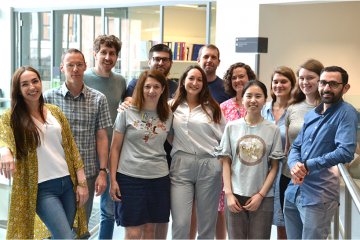Project grant
A Drosophila single-cell resource for brain metabolism research

At a glance
Completed
Award date
February 2021 - October 2023
Grant amount
£255,966
Principal investigator
Dr Alex Gould
Institute
The Francis Crick Institute
R
- Replacement
Read the abstract
View the grant profile on GtR
